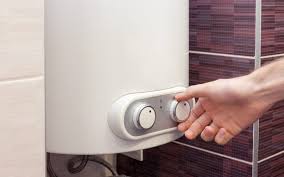Your water heater is an important appliance, responsible for providing hot water for your showers, your washing machine, the sinks throughout your house, and other plumbing functions. If it isn’t working properly, you may be able to apply a quick repair to restore it to full working order. However, in some cases, your water heater will be beyond saving—and you’ll have to invest in a completely new unit.
How can you tell when it’s right to install a new water heater?
The Importance of Installing Your Water Heater
First, if you’re going to install a new water heater, it’s best to contact a professional plumber to handle the job unless you have professional experience installing water heaters. A professional will be able to help you select the right unit for your home, and will provide a clean, reliable installation you can count on. It costs a bit more than doing the installation yourself, but if you try the DIY approach, there are many things that could go wrong—and you could end up creating a safety hazard for you and your family as well.
Signs It’s Time to Install a New Water Heater
If you notice any of these warning signs, it may be a clear indication that your water heater needs to be replaced:
1. The water heater is more than 10 years old. Even the best-quality, most efficient water heaters aren’t going to last forever. You can generally count on a water heater lasting somewhere between 8 and 10 years—perhaps even longer if you’re regularly maintaining your unit. However, as water heaters get older, they become less reliable, and could present a safety hazard in some situations; it’s often better to fully replace the appliance before you’re forced to, or before it leaks all over your basement. If you’re not sure how old the water heater is, you should be able to tell its age from the serial number. The first letter of the serial number refers to the month of manufacture, with A corresponding to January and L corresponding to December. Following the letter are two numbers that will tell you the year of manufacture; therefore, D06 would represent a water heater manufactured in April of 2006.
2. You see signs of rust. Most water heaters are made of steel, but steel has a tendency to rust. Over time, rust corrodes steel, weakening it and making it unable to do its job properly. If you notice signs of rust around the inlet valve or the pressure relief valve of your water heater, it probably means rust has begun to develop on the inside of the tank. At this point, your only real option is to replace the tank. You may also notice signs of rust in your water; however, rust in water could also be a result of your pipes.
3. Leaking. One of the unfortunate side effects of an aging water heater is leaking. In mild cases, the water heater may dribble out a steady stream of water. In more extreme cases, you may be dealing with flooding. Generally, leaks happen because of a fracture on the inside of the tank, which developed due to expansions and contractions from thousands of heating cycles. In any case, once your water heater starts to leak, it’s time to replace it.
4. Excessive noise. Your water heater should be relatively silent, emitting only a small amount of noise. But as the water heater gets older, you may start noticing louder and more volatile rumbling noises. This could be a result of sediment buildup; if that’s the case, you should completely flush the heater. In fact, you should be flushing your water heater on an annual basis. But if the noise doesn’t go away, it could be a sign of a much more serious problem—and will serve as grounds to replace the water heater entirely.
5. Bad or inconsistent heating. Your water heater has one job: heat the water of your home. If it can’t do that, it needs to be replaced. If you have to deal with a cold shower, or if you notice the temperature of your hot water is inconsistent, check the temperature settings on the unit. If nothing appears out of the ordinary, it could be a sign that your water heater is on its last legs. It’s time to start shopping for a new unit.
Today, there are many different types of water heaters to choose from, each with distinct advantages and disadvantages. If your water heater is no longer functioning properly, this could be your chance to upgrade to a better unit—or a unit better suited to your personal lifestyle.

Leave a Reply